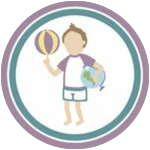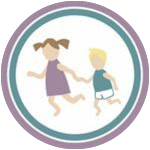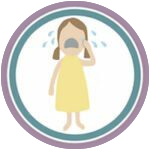
Q: I cannot get my children, 13, 10, and 7, into anything of value. I try to create “life learning” situations but they are not interested. We offer nature activities and celebrations, but they only want to play. Not much draws them into what I offer. They don’t even want to know the names of trees, lakes, or mountains as we go by them. What am I missing and how will they learn?
A: A few years ago a mother told me about an experience her children had at their friend’s house. When she picked them up, her daughter said, “David was making a lesson out of dinner. That was so stupid.” (David was one of the parents present at the gathering.) “Yes,” added the boy, “and I hid under the table so he wouldn’t see me laugh.”
“What did he talk about?” asked the mother.
“I don’t know, something about how rice grows in China,” the girl started and the boy took over, “He just needed to teach, so we waited till he was done, and then we could eat.”
I thought the boy was very generous and insightful, and he found a way to keep himself from spoiling David’s fun. I often call this desire to teach, which most of us are inflicted with, “teacheria.” Teacheria is the drive to give lessons; it is not curable, but the symptoms can be managed, or satisfied in an educational setting. Teacheria is contagious but washing hands and vitamin C don’t help. Both my parents had the “disease.” I believe it is easily transmitted by modeling. “Let me tell you how it works,” my father used to say and I had to listen quietly for his full explanation. Although I have Teacheria, I do not teach my children; I am clear that my drive to teach has nothing to do with their needs or preferences. Why should I interrupt their magical tour of this planet with my chatter? If I ever forget and start explaining something, my children set me straight promptly and without ceremony. I delight in their clarity and assertiveness. Teacheria can be satisfied through harmless outlets. To use my “teacheria” productively I offer it in writing and speaking to those who freely choose to listen. There is nothing wrong with loving to teach. Find your audience and enjoy. In this way not only you will get your need to teach met, but your listeners will actually benefit from what you have to offer. If you don’t have teaching opportunities, you can write your thoughts and share them in a blog or on a forum online. At the same time, to stop yourself from intruding on your child, question the validity of your need to teach them. I do understand your desire to teach, but as you notice, the children don’t want it, which is wonderful. They are clear about what is valuable to them. Life learning is not something we orchestrate. Confusion occurs in our minds as parents when we believe concepts that are not true. Here are some of the deceptions the mind creates in order to keep you teaching: 1) My child is interested – she asked me questions:
Does a curious question mean that a child wants a whole lesson? Absolutely not. So, train yourself to answer only the question asked. “Why does it hail instead of rain?” The answer can be, “The raindrops freeze in the cold air.” If the child wants to know more, he will ask.
If you want to let a child know that more is available, you can say, “I have a book about it. Feel free to ask me if you have more questions,” or, “ We can search online if you want.” Most of the time, when you offer more information without imposing it, a child who feels safe around you will refuse it.
Children’s interests are rarely their passions and they only want the minimal answer. When it is a child’s passion, you will know about it as clearly as you know when she wants candy. Even if a child wants to look in the book or listen to more information, keep responding only to his level of interest. Be prompted by the child and resist the temptation to shower him with your knowledge or even wisdom. 2) My child won’t learn if I don’t teach her:
The deception of this thought is loud and clear. In fact, the opposite makes more sense:
It is more likely that she will not learn as much when I waste her time with my imposed lessons, that she will learn best when I don’t teach, and, that I won’t learn to honor her ways if I impose my teaching (and I don’t heal from Teachers). She can walk her own authentic path following her own blueprint and learn to be the author of her learning. Children learn through life and they seek what they need just on time; when they need it. 3) My child must learn to listen even if it is not interesting:
Why? Should we hurt our children so they learn to deal with pain? Should we disrespect them so they learn to deal with disrespect? I do not see a need to design negative experiences in preparation for such possibilities. Although challenges are a valuable part of life, you need not orchestrate those for your child. Trust and let life be the teacher. Besides, why should your child have to listen to what is not interesting? I invite you to consider the possibility that, if free to create her life, a child can grow up to create life experiences that don’t include listening to unwanted lessons. The other day I was being inattentive to my teenager as he was talking to me. He stopped and said calmly, “You know mom when I am not interested I just say so. You don’t have to listen. Just say so.” He was not upset, only asking me to be authentic and honest. Maybe your child is the teacher and it is your time to learn. 5) As homeschooling parents we need to seize the opportunity to teach:
How about turning this thought upside down: As parents, we must seize the opportunity to learn from our children; learn authenticity, learn to play, to be happy, to be candid, to connect, to express, to be able to move on from pain to joy; learn to trust the flow. These qualities will do you and your child much more good than shelves of encyclopedias in her or your head. 5) Knowledge is important:
The value of knowledge seems logical until we find ourselves at an older age trying to rid ourselves of the endless barrage of limiting information and chatter in our heads.
This does not mean that all knowledge is valueless. But, what is of value to each child is dictated by her mind and the best time is always when her mind tells her so. Expose, but then follow; don’t lead. Children learn what they need and skip what they don’t, just like you. It is not your call to decide what is valuable for another human being, and you are free to make opportunities available and to model the joy of life and passion for learning. 6) Knowledge brings happiness:
Does it? Who cares how rice grows if one doesn’t know how to be happy? A child only needs the habit of being grateful. In happiness, there is nothing she cannot learn if she wants to. I know people with a Ph.D. and a brain full to the brim who are depressed. People who are at peace with themselves go after knowledge when they need it. When you are at peace with your children’s wonderful interest in play, they will have a teacher of joy.
Knowledge can assist an individual in having opportunities to participate in a way that supports her purpose. But, then, when she has purpose and joy, she will initiate the acquisition of skill and information. She only needs to know what is available in the process of life itself. Expose, but don’t impose.
What do I mean by exposing? Simple: Eat rice. That’s all the exposure your child needs. The moment you teach about rice the child loses the initiative of interest and self-reliance. Rice may not be interesting to her. She does not need to know what is neither interesting nor useful to her. Knowledge does not on its own bring happiness, especially when it is not freely acquired. Grow a garden, play music, listen, hike, travel, sing, read, connect, love and laugh. Be the teacher of joy, generosity, and gratitude by living these qualities.
The river gives without imposing. It doesn’t jump out of its route to water a tree. The trees choose to grow close to the water. The river is just there. Be there; a stream of love.
©Copyright Naomi Aldort









